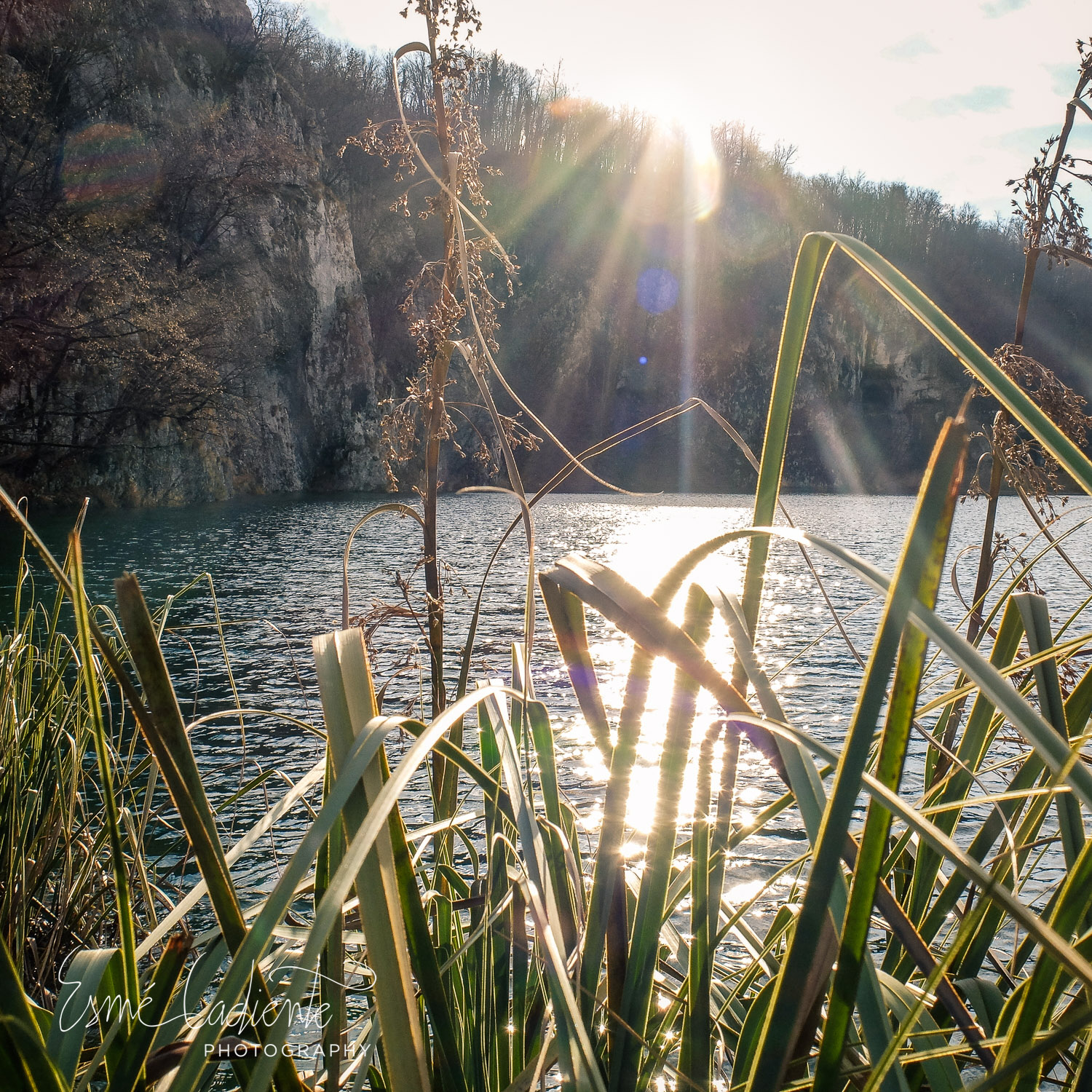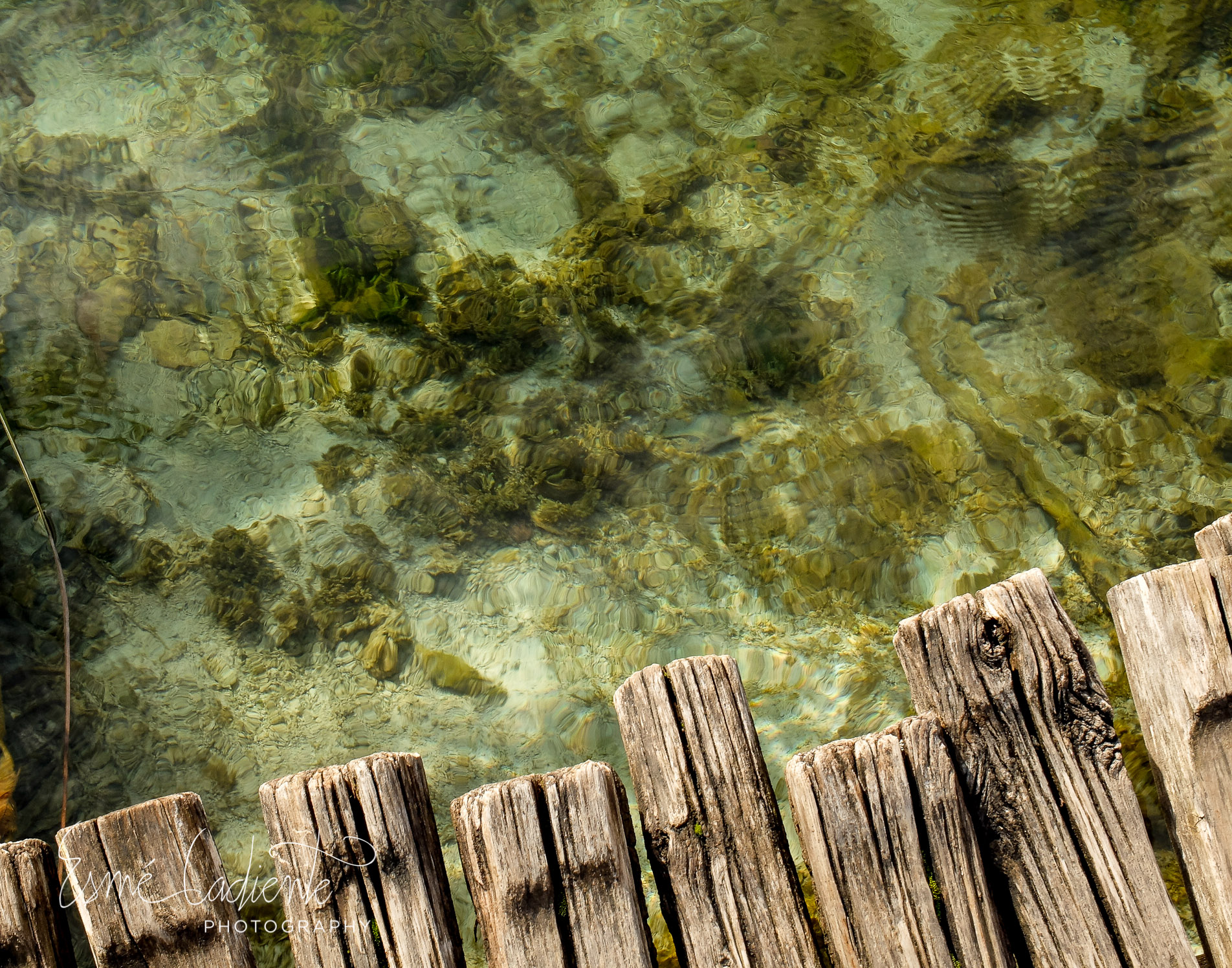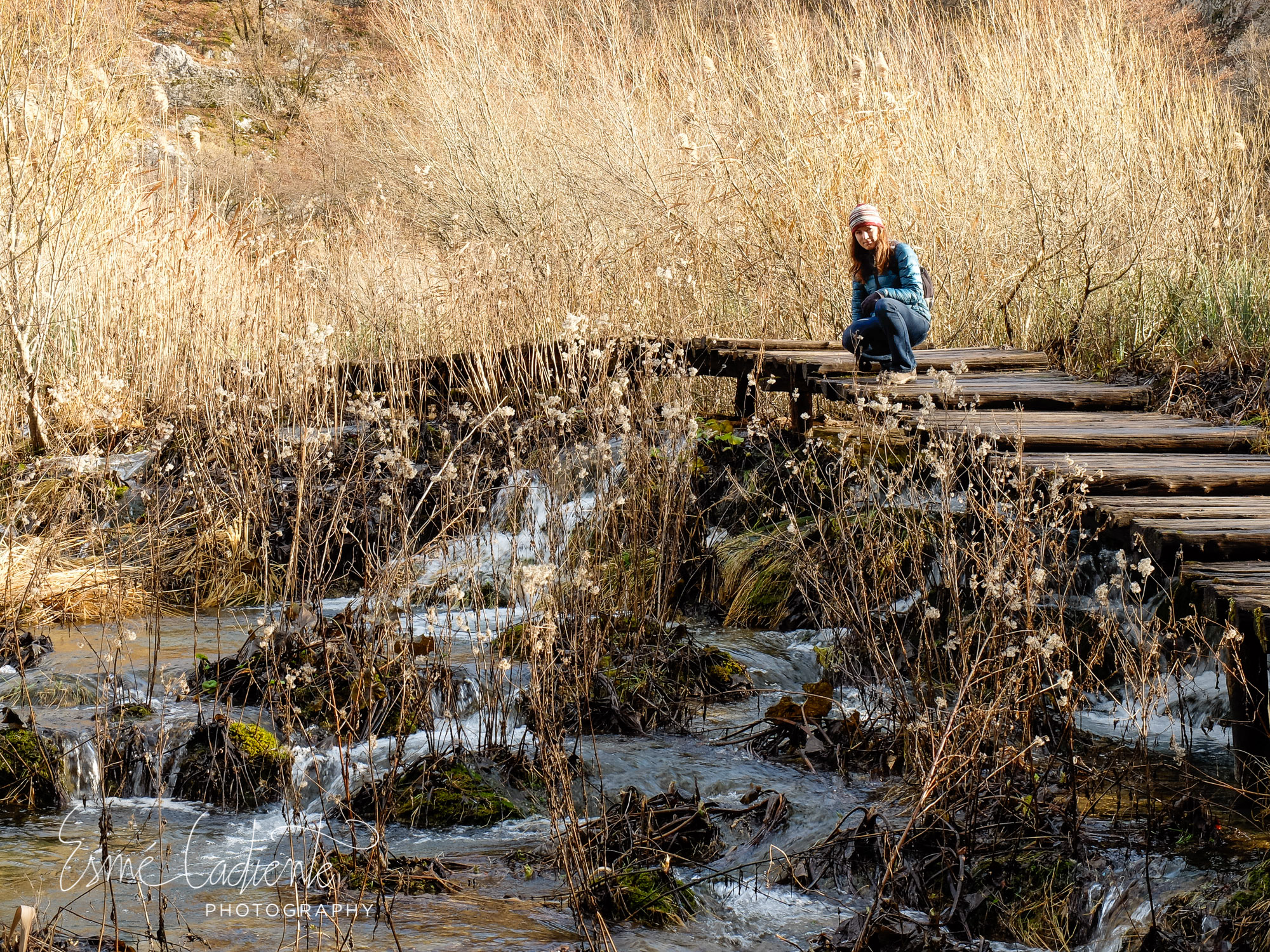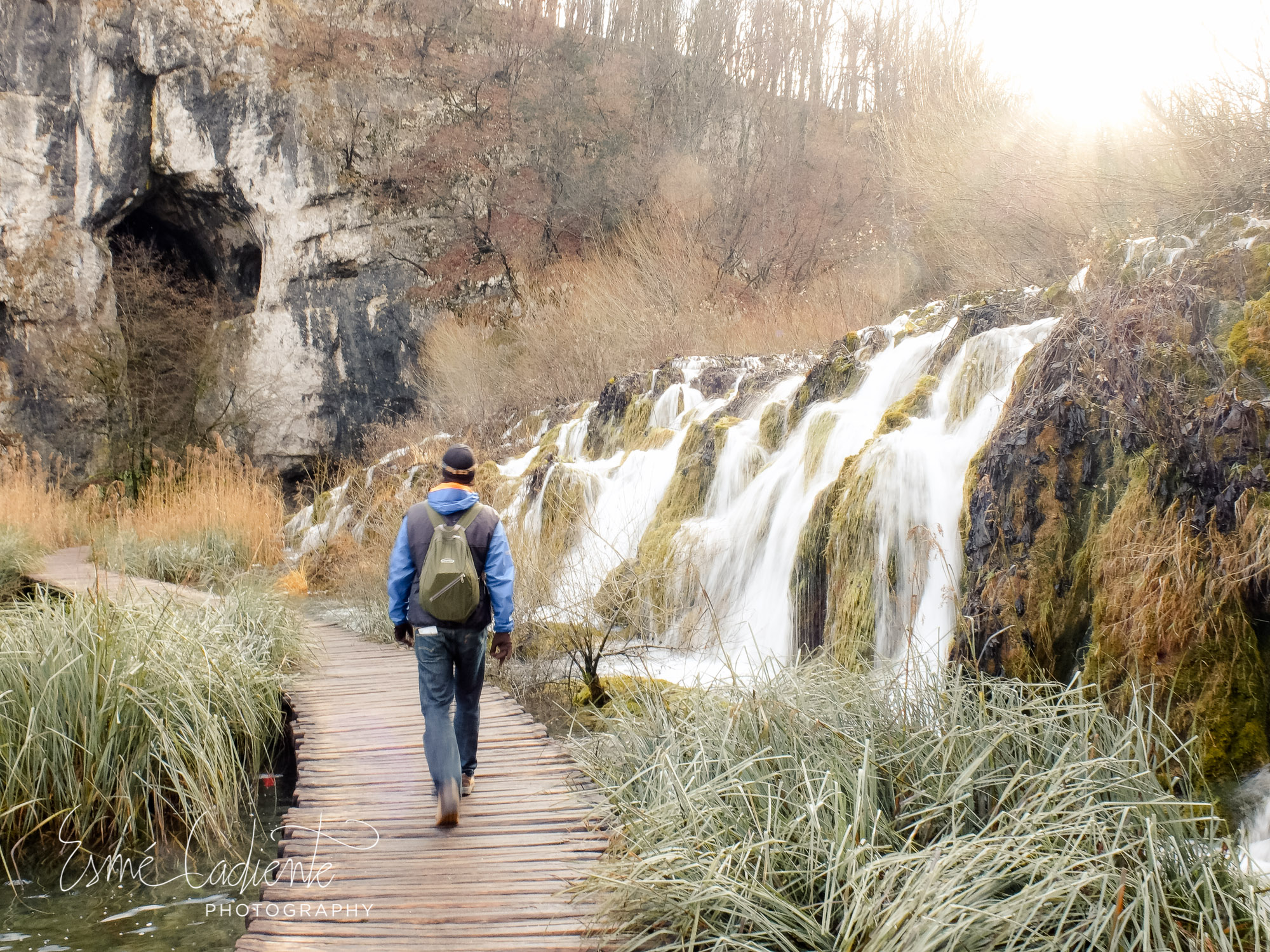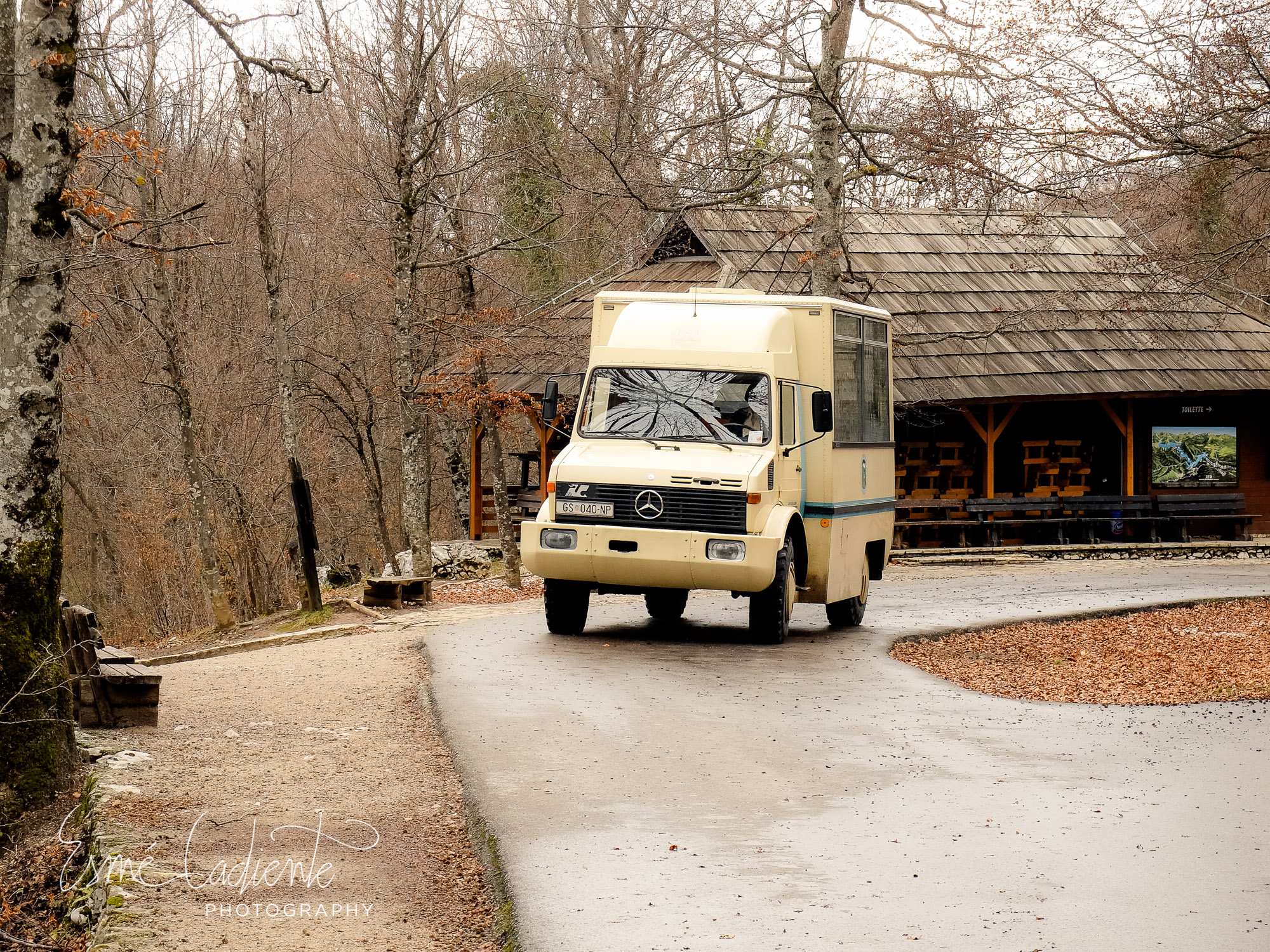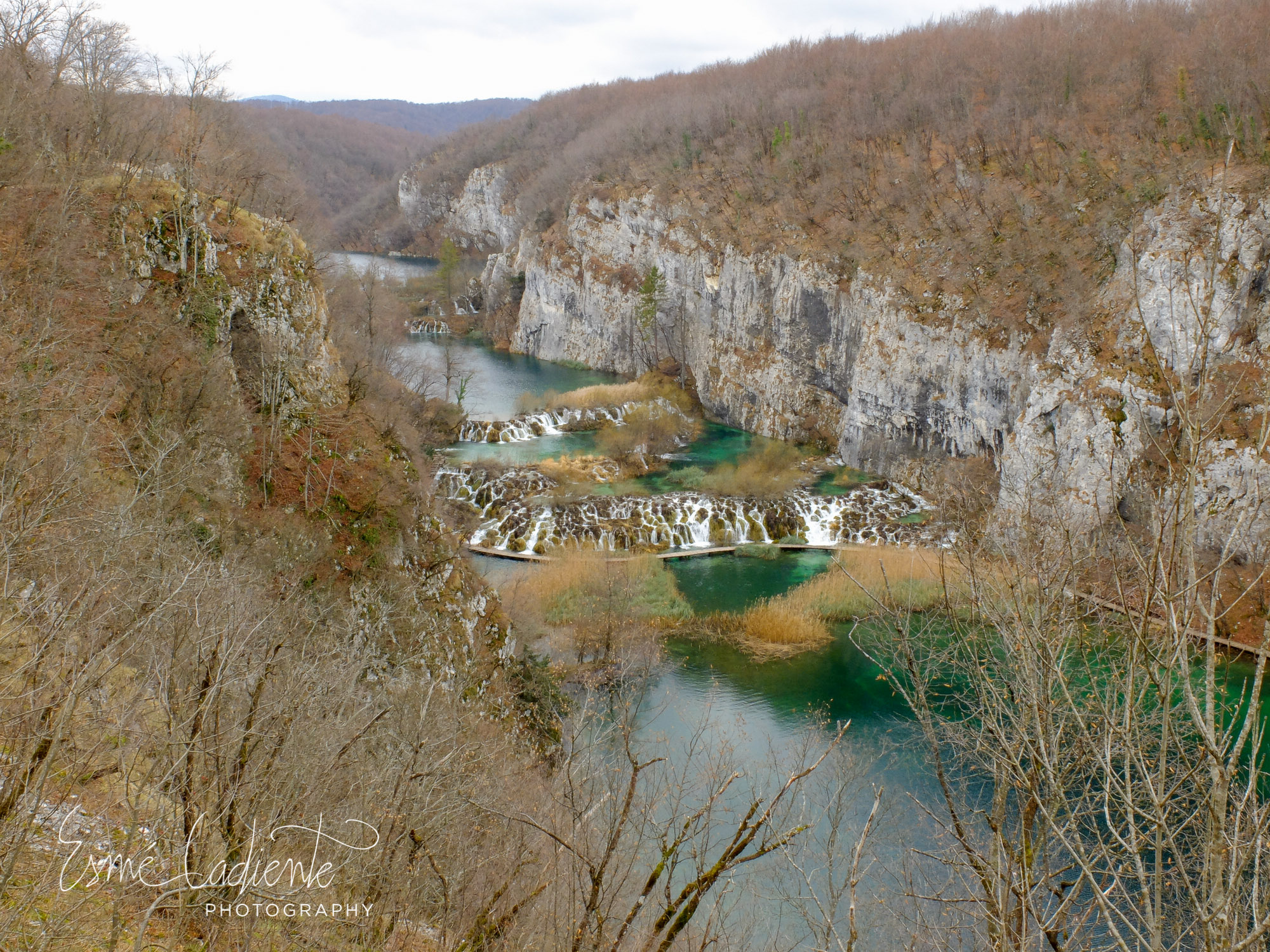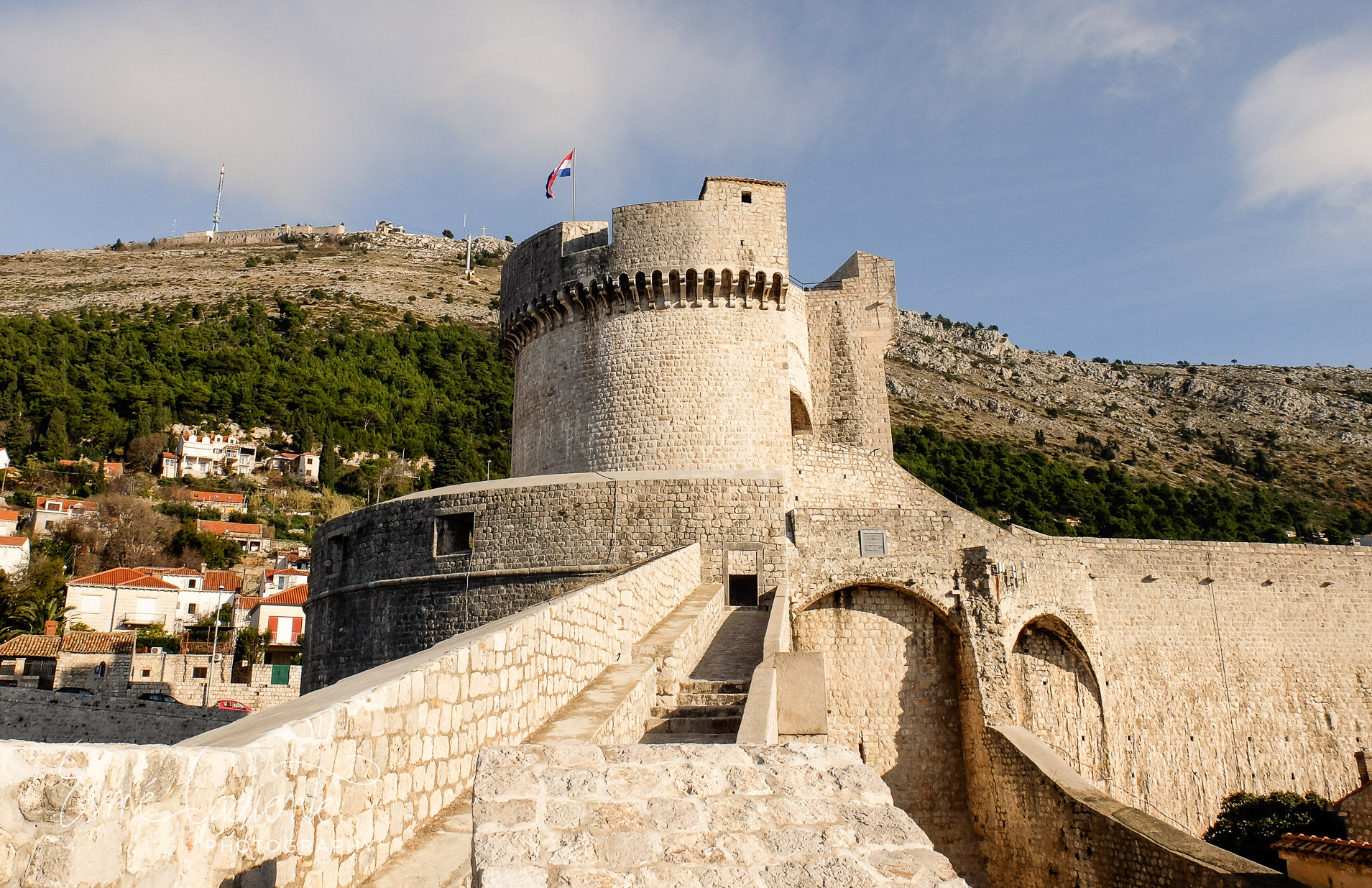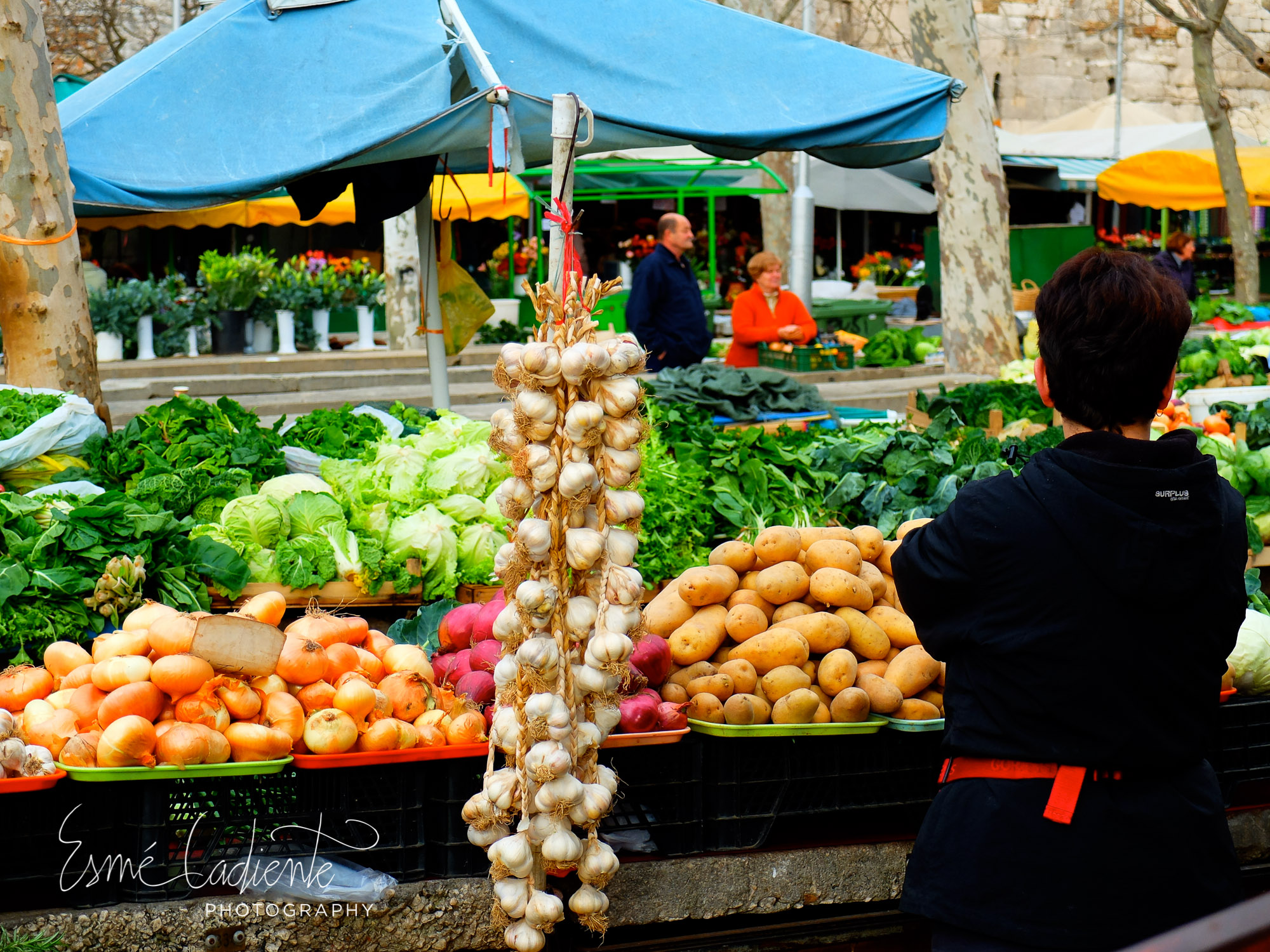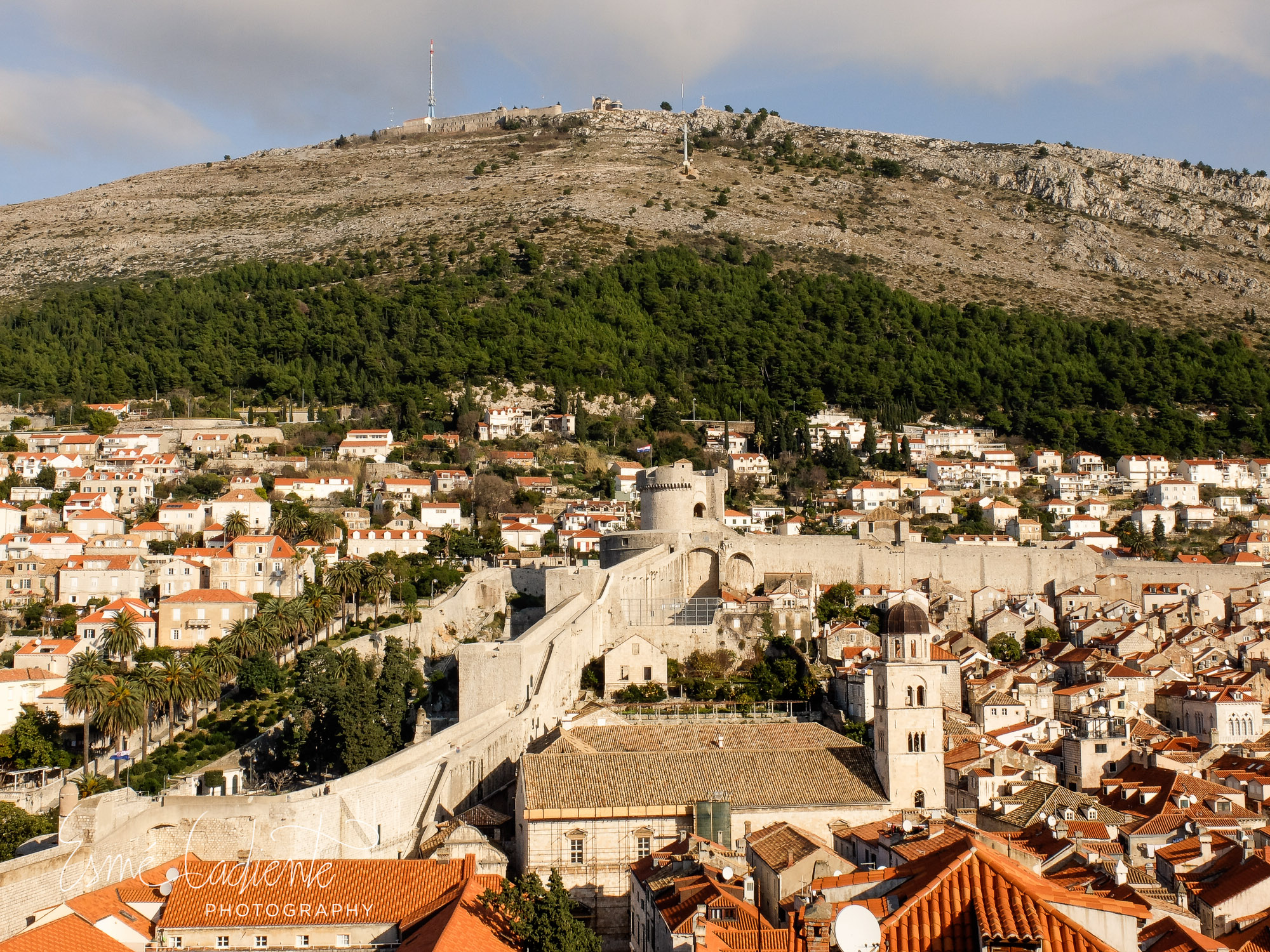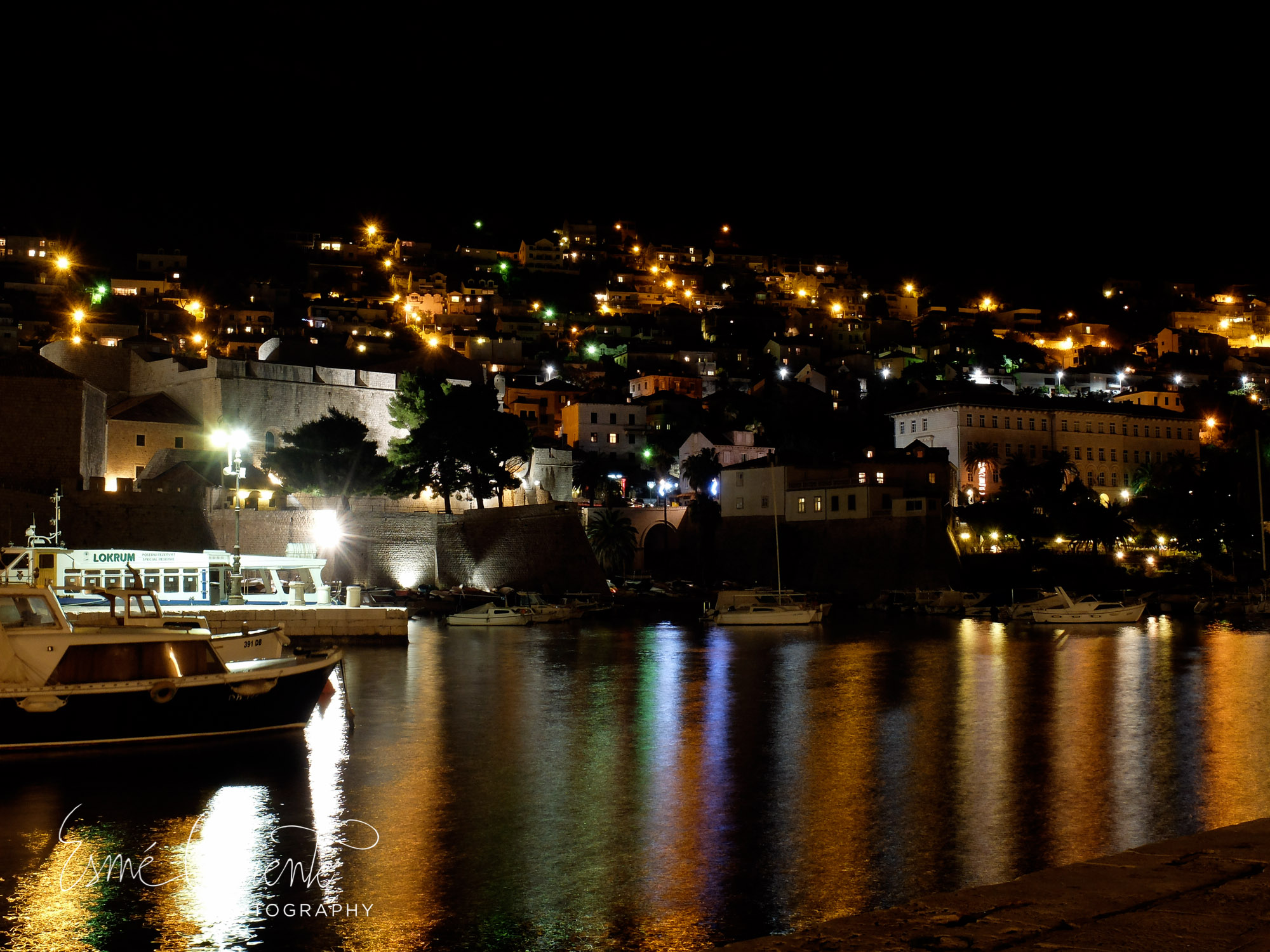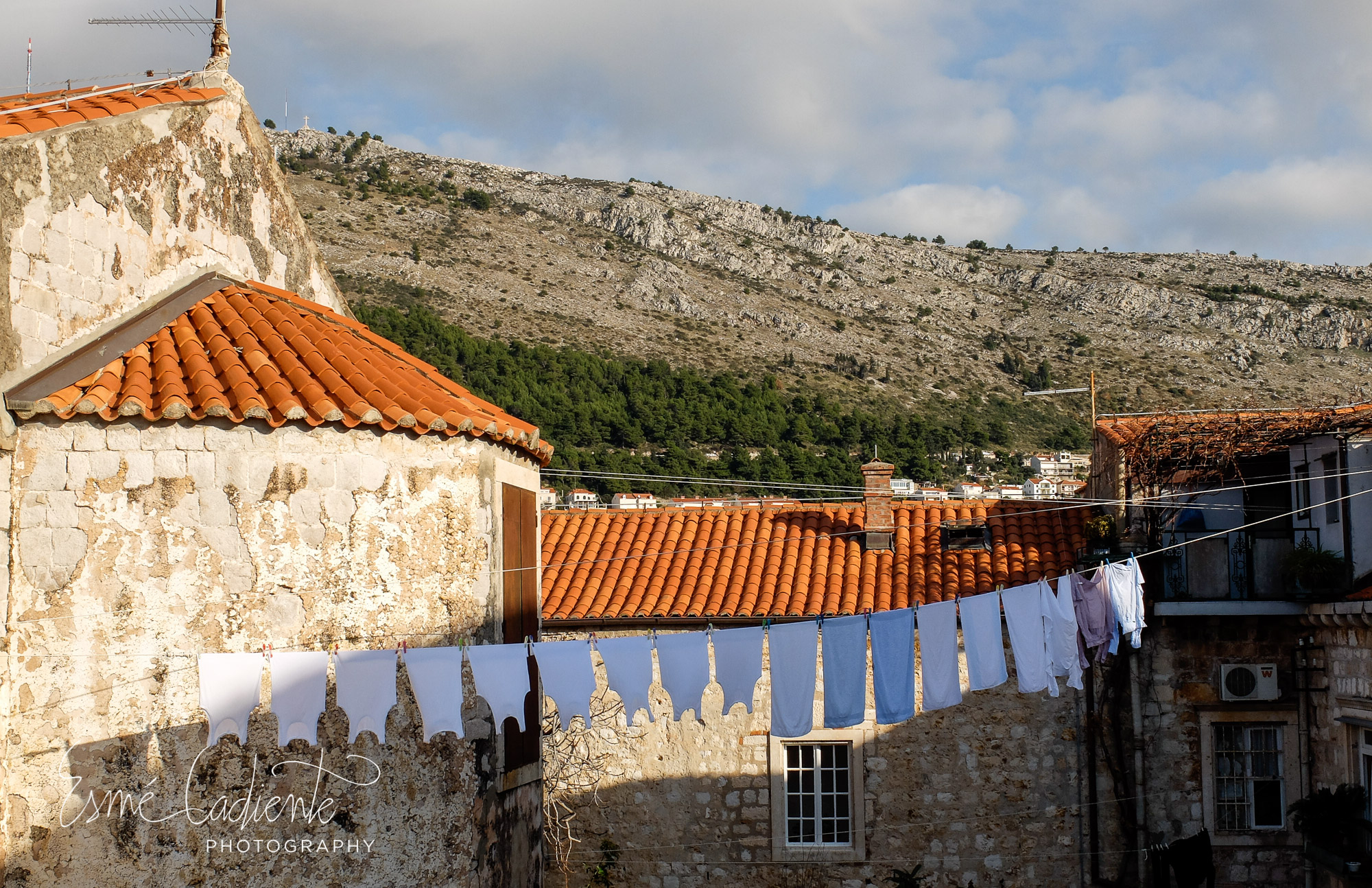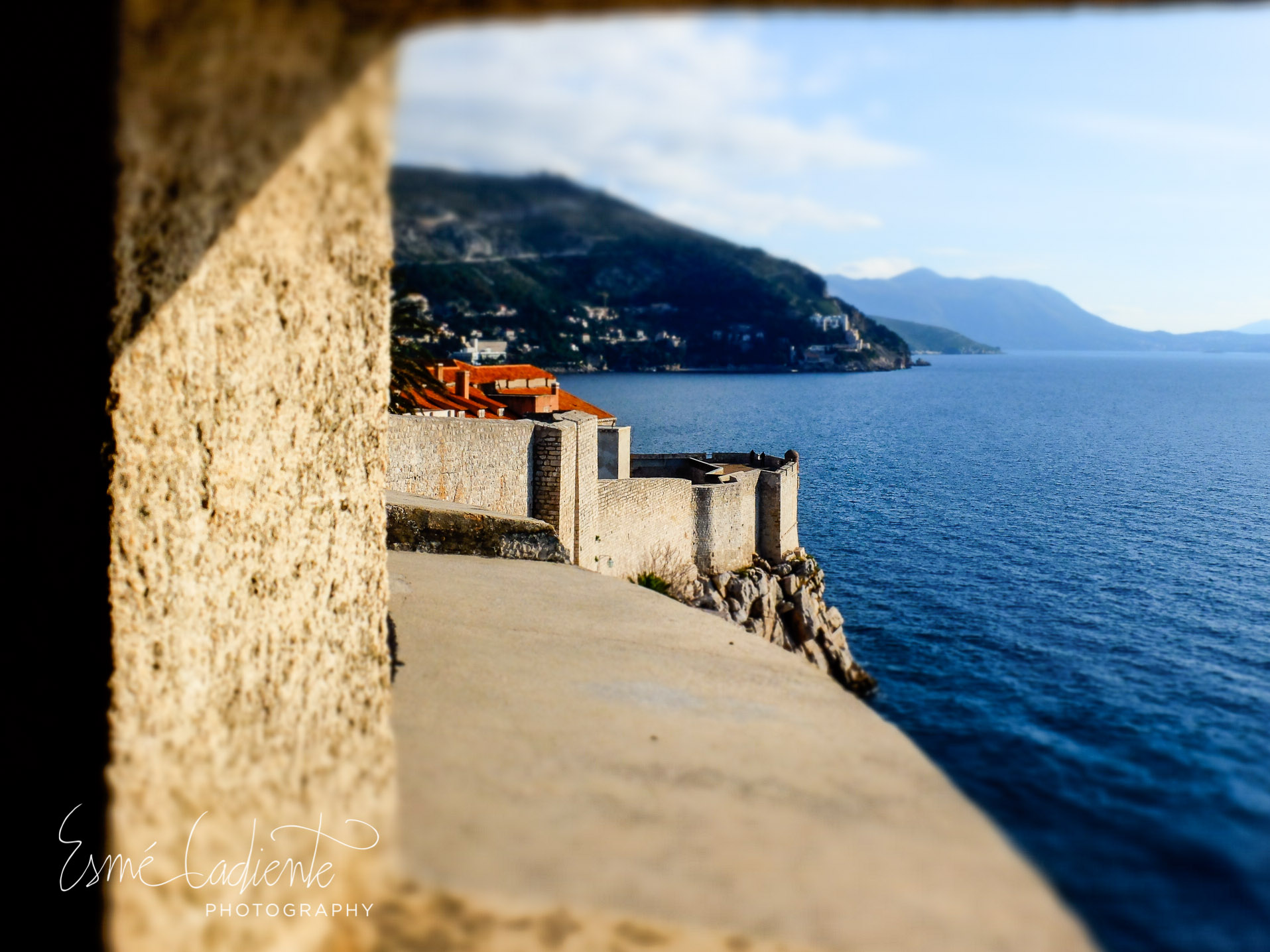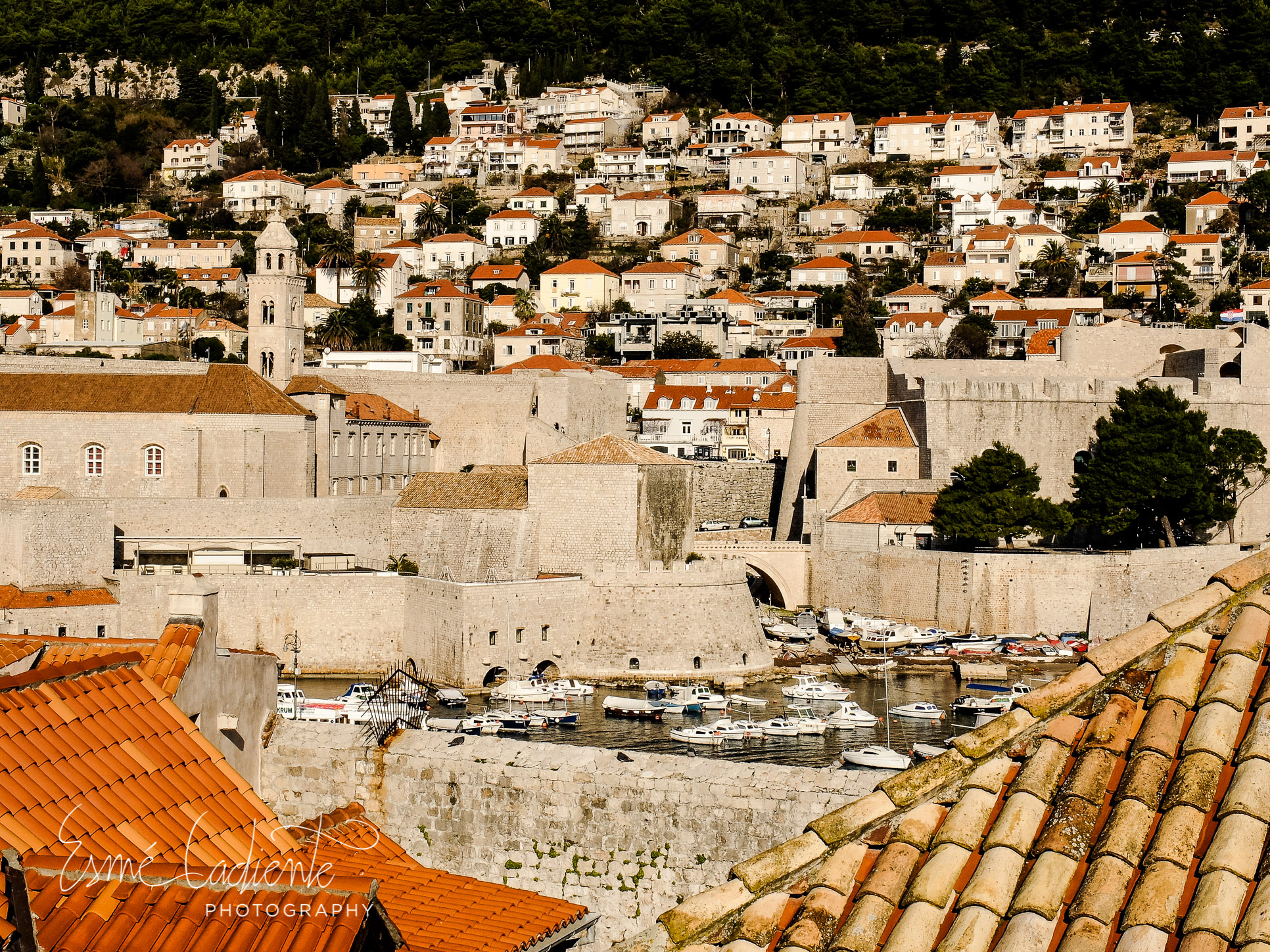The salmon sizzled, spitting hot olive oil from the striations in its flesh. The fish was so fresh, you could not smell that it was fish, rather it smelled of salt water and cold—the way a deep breathe on a frosty morning smells. The small restaurant in Split, Croatia was abuzz with activity, plates were passed around, beers imbibed. The heavy wooden front door locked out the chilly November air and the breathe of well-fed patrons fogged the small windows, blocking the view to the street.
Located seaside on the Adriatic, with a backdrop of looming coastal mountains and full of lived-in dilapidated palaces and monuments, Split is an amazing city. Unlike neighboring roman cities in Croatia, and those in Italy, Split has a decidedly different way of preserving its history. Full of peasant markets, shops and restaurants, the fortresses and cathedrals of old are incorporated in the city’s modern life. Rather than being memorialized into museums, the ancient palaces are still used as public places where the city lives and thrives.
Diocletian's Palace, Split, Croatia
Walking around the atmospheric city at night felt like another world . Running in and out of ancient palaces, deserted, but for a few teenagers looking for quiet nooks and crannies and sailors docking their boats, Split felt magical. The marble streets were polished from the footsteps of the thousands of people that lived long before us. History was not only seen, but felt here. Both shabby and splendid, Split is the perfect answer to a modern city that has maintained its authenticity of the past.
The barmaid cleared our plates and asked where we were off to. When we told her she gave us some welcomed advice on how to get there since it was off-season and few buses were running. We were headed to Plitvice National Park, an incredible gorge sliced through the landscape and dotted with hundreds of terraced waterfalls and turquoise pools. The rest of our time in Croatia flew by and we loved every moment of it.
From bombed out buildings in Zagreb, to the natural wonders of Plitvice National Park; from antiquity alive in Split, to the wonders of the walled city of Dubrovnik, Croatia never ceased to amaze me. It is a country that comfortably lives with its past -the good and the bad. Leaving Dubrovnik, we caught glimpse of two sailors sitting down for breakfast. The waitress waved the pigeons off their table and brought them two strong dark coffees. Snapping a photo of them, I realized that the photo had no time stamp. Was it not for the plastic blue lawn chairs, the photo looked like it could have been taken half a century ago, or today, as it was. Croatia itself has no time stamp. The country lives and breathes it past, present and future. Ancient fortresses are used today as shopping centers and bombed out apartment buildings leave modern scars in the cityscapes. In a country that defies the assumptions of time, we are provided a rare glimpse into a century unfolded.
Plitviče Lakes National Park
Sailors out for breakfast, Dubrovnik, Croatia
Neon hotel sign in Diocletian's Palace, Split
A view from the city walls, Dubrovnik
An eclectic bar in Zagreb.
Lovebirds on the rooftop
Market day, Split
A view into the life inside the city walls - Dubrovnik, Croatia
Laundry hanging to dry, Diocletian's Palace, Split
Bombed out building, Zagreb
Christmas tree, Diocletian's Palace, Split













